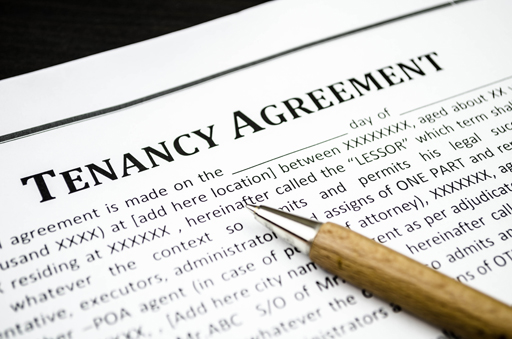3 The tenancy agreement
You will have to enter into a tenancy agreement with your landlord before moving in. Note that when you do this you might be dealing directly with the landlord or with the agency they use to administer their rental properties.
You and your parents should read the agreement in full to ensure that you fully understand your commitments and liabilities. If you’re unsure about the meaning of parts of the agreement you can take it to your university’s accommodation services to check. If you’re particularly concerned, you could get a solicitor to check and comment on the agreement – although they will charge a fee for doing this.
The reality is that you might have little chance to change the terms of what are, normally, fairly standard tenancy agreements. In most university towns it’s a supplier’s market when it comes to (sound) student accommodation – so your landlord will have little incentive to change the terms of the agreement in your favour.
One thing to check carefully is whether the tenancy agreement is with you individually or, in any way, with you and your fellow students jointly. Avoid a joint tenancy agreement as far as possible since you could find yourself liable to costs arising from the actions of your co-tenants.
What happens if one, or more, of your co-tenants quits before or during the tenancy period? In these cases you need to check that you have no liability to cover their rental payments. Not taking up residency after signing a tenancy arrangement is quite common. It often happens when a student fails their previous end-of-year exams and does not return to university for the following year. In this case the tenancy agreement should stipulate that it’s up to the non-returning student to meet the rental payments due under the agreement unless a replacement tenant is found.
Key questions to examine in the agreement are these.
- What are the timings of rental payments?
- What happens at the end of the term of the tenancy? What obligations do you have regarding the state of the property when you move out?
- What are the arrangements and timings for the repayment of the deposit? And what might the landlord charge against this deposit? It’s common for students not to get all their deposit back. Landlords might even deduct the cost of replacement light bulbs (to deduct a sum in this way is to ‘set off’ against the deposit).
There are two other important matters.
- You will almost certainly need to provide a guarantor of your financial responsibilities. Your guarantor will have to complete the paperwork specifying the terms of this guarantee. They might have to provide proof – financial statements – that they have the resources to meet any possible obligations arising from the guarantee. So even ahead of identifying the property you want to rent make sure that your parents (or alternative guarantors) are warned about this.
- Your landlord, or the agency they employ, might need to obtain proof that you and your co-tenants have the right to be in the country. Note that this requirement only applies to certain parts of the UK and is your landlord’s responsibility. It’s not your responsibility, although in completing the task your landlord might require certain details from you. It’s more likely that your landlord will deal directly with your university if there is a need for the checks to be made.
Activity 3 Guarantors – why do you need one?
Why will landlords usually require guarantors when you enter into a tenancy agreement?
Feedback
Most students are not well off. Without guarantors the landlord is at greater risk of rent not being paid when it’s due. With a guarantor in place a landlord can obtain financial redress if a student fails to pay the rent themselves.

